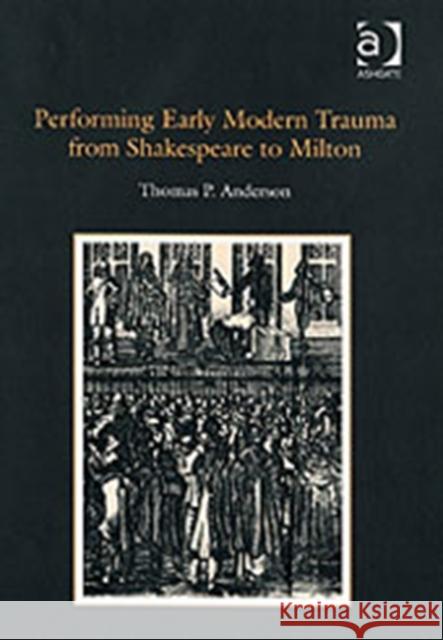Performing Early Modern Trauma from Shakespeare to Milton » książka
Performing Early Modern Trauma from Shakespeare to Milton
ISBN-13: 9780754655640 / Angielski / Twarda / 2006 / 248 str.
Performing Early Modern Trauma from Shakespeare to Milton
ISBN-13: 9780754655640 / Angielski / Twarda / 2006 / 248 str.
(netto: 695,40 VAT: 5%)
Najniższa cena z 30 dni: 705,23
ok. 22 dni roboczych.
Darmowa dostawa!
An examination of political and cultural acts of commemoration, this study addresses the way personal and collective loss is registered in prose, poetry and drama in early modern England. It focuses on the connection of representation of violence in literary works to historical traumas such as royal death, secularization and regicide. The author contends that dramatic and poetic forms function as historical archives both in their commemoration of the past and in their re-enactment of loss that is part of any effort to represent traumatic history. Incorporating contemporary theories of memory and loss, Thomas Anderson here analyzes works by Shakespeare, Marlowe, Webster, Marvell and Milton. Where other studies about violent loss in the period tend to privilege allegorical readings that equate the content of art to its historical analogue, this study insists that artistic representations are performative as they commemorate the past. By interrogating the difficulty in representing historical crises in poetry, drama and political prose, Anderson demonstrates how early modern English identity is the fragile product of an ambivalent desire to flee history. This book's major contribution to Renaissance studies lies in the way it conceives the representations of violent loss - secular and religious - in early modern texts as moments of failed political and social memorialization. It offers a fresh way to understand the development of historical and national identity in England during the Renaissance.











